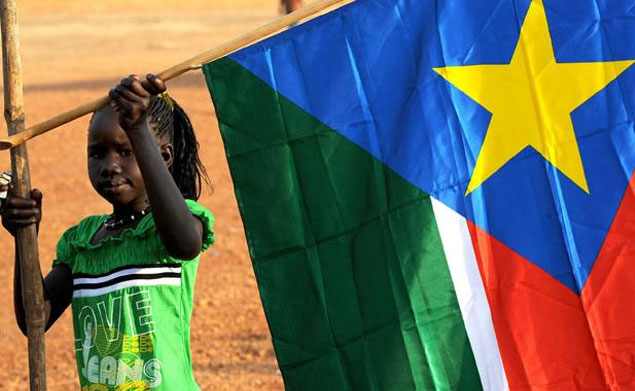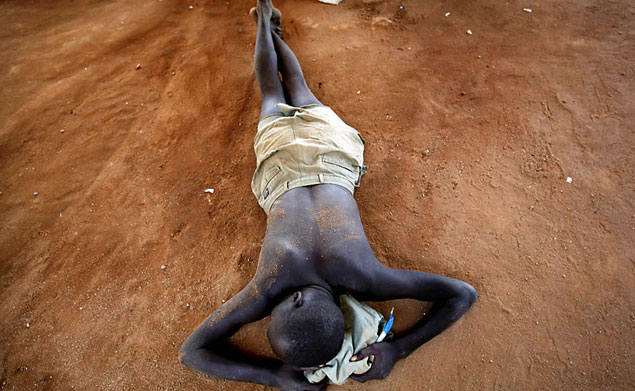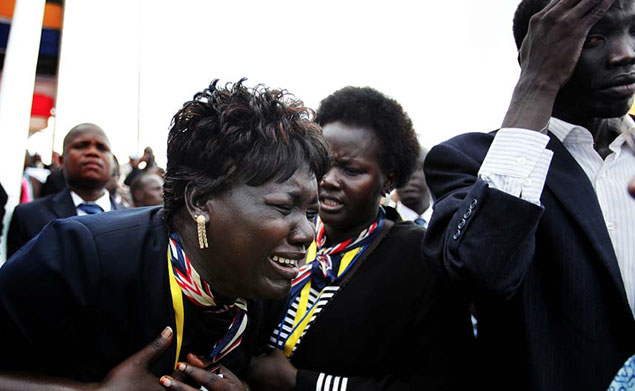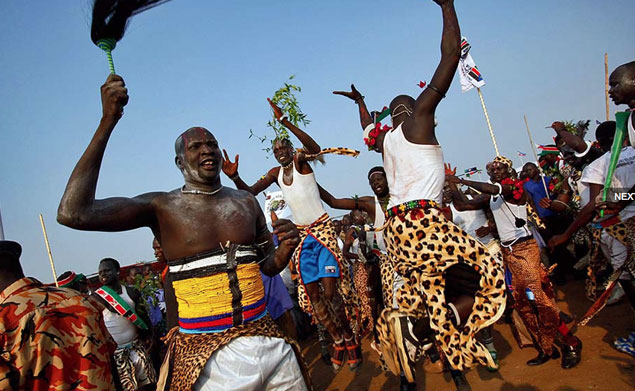Leaders of the world and international agencies congratulated the world’s newest country, South Sudan, on its independence on July 9th, 2011. Many have long advocated for a separation of the Arab led Muslim North and predominantly Christian South due to decades old conflicts, which have reportedly resulted in millions of deaths.
While many political pundits have raised questions about the South Sudan’s future, others, such as the much documented ‘Lost Boys’ of Sudan, are optimistic and hopeful about their nations future. The ‘Lost Boys’ of Sudan was a term coined by aid workers in Africa who assisted many of the young boys and men who were displaced by Sudans’ Civil War (1983-2005). These ‘Lost Boys’ fled enslavement and repression in Sudan and endured long arduous journeys in hopes of seeking refuge in neighbouring countries in Kenya and Ethiopia. After learning about the plight of these young boys, the US government in conjunction with the United Nations High Commissioner for Refugees (UNHCR) adopted a program that allowed the settlement of nearly 4000 of these ‘Lost Boys’ in states all across the US. The story of these ‘Lost Boys’ was also brought to the attention of the rest of the world in a documentary detailing the plight of some of these young boys aptly titled Lost Boys of Sudan, which was nominated for an Emmy Award.
Now that South Sudan has gained its independence, many are looking to these ‘Lost Boys’ who have had the privilege of attaining an education to ‘come back’ to their homeland and assists in the nation’s development. Southern Sudanese leader John Garang was one of the first to express the need for these ‘Lost Boys’ to obtain a better education so that one they can become further leaders of their nation. In 1985, Mr. Garang ordered over 600 of these ‘Lost Boys’ to put down their guns so that they can be delivered to the arms of revolutionary comrades in Cuba. It was Mr. Garang’s wish that in Cuba, these boys will be able to attain the necessary education and skills as doctors, economist, engineers and political leaders of South Sudan. While Garang’s plan did not pan out the way he intended due to the collapse of the Soviet Union, the same fate is expected of the ‘Lost Boys’ now residing in the US and other Western countries, where they were able to obtain an education and a more universal view and of the world.
Others, such as Gregory Malith Akoon who is from South Sudan but was able to obtain an education in Ethiopia, also believe that there is a need for the return of these ‘Lost Boys’. After South Sudan’s independence was made official, he pleaded with the ‘Lost Boys’ to “please come back….We need people who have education and the kind of knowledge we need. We will welcome you back home to help develop our new country and teach our people.” With much of South Sudan still in a state of euphoria after their momentous achievement on July 9th, 2011, they will eventually have to settle into reality; one that is characterized by ‘ethnic’/cultural cleavages, rampant poverty, poor infrastructure etc. While there is a call for the return to these ‘Lost Boys’ since they now have a place to call ‘home’, many have created lives in their new countries and although they are happy for the progress their newly created country has been able to make, only time will tell what impact, if any, they will have in the future development of their beloved nation.
Orijin Culture would like to congratulate South Sudan on its independence and wishes it success as it embarks on a difficult journey to development.
Latest posts by cadmin (see all)
- The Story of a Ghetto Boy - June 28, 2015
- The Rise of The Next Gen. Marley’s | Bob Marley’s grandsons (VIDEO) - May 8, 2015
- Meanwhile somewhere in Sweden, these Swedish African dancers… - March 24, 2015






